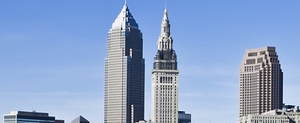
Have you ever worked as a server or waiter in a restaurant? If you have, chances are you were paid a small hourly wage by your employer plus tips that you made throughout your work day. Chances are that during your employment, on at least one occasion, you were a victim of a dine-and-dash, where a customer eat his or her meal and then failed to pay for it. Chances are that if you suffered a dine-and-dash, your employer made up for the loss by deducting it from your pay. Was your employer’s action legal? The answer … Maybe.
Pursuant to the Fair Labor Standards Act, employees who are paid by tips as part of their wages can be paid less than the federal minimum wage of $7.25 per hour, as long as what the employee acquires in tips makes up the difference between their hourly rate and the minimum wage. This process is called a “tip credit.” This rule provides that in cases where the employee receives insufficient tips during a pay period in order to meet that $7.25 per hour mark, the employer must make up the difference; otherwise, they are in violation of federal law.
So how do dine-and-dashes factor in? Well, the Department of Labor has explored this issue and responded as follows:
Where deductions for walk-outs, breakage, or cash register shortages reduce the employee’s wages below the minimum wage, such deductions are illegal. Where a tipped employee is paid $2.13 per hour in direct (or cash) wages and the employer claims the maximum tip credit of $5.12 per hour, no such deductions can be made without reducing the employee below the minimum wage (even where the employee receives more than $5.12 per hour in tips).
Thus, if an employer makes any deduction based on a dine-and-dash and that deduction results in the employee’s pay being less than minimum wage for the given pay period, the employer has violated federal law.

In addition, the employer cannot avoid a violation if it just so happens that the employee’s tips were high enough to still keep their wage rate at or above minimum wage after the employer makes a deduction based on a dine-and-dash. The simple principle here is that under federal law, tips belong to the employee, not the employer.
The employer may want to blame the serve for not watching the table, but the employer cannot make the employee pay for it.
There are several other examples depending on the employee’s hourly wage and the tip credit claimed by the employer that may or may not impact the employer’s ability to deduct a dine-and-dash from the employee’s pay. If you think that your employer has improperly deducted loss or shortage from you during your employment, you should contact the employment attorneys at Spitz, The Employee’s Law Firm and ask for a free consultation.
If you even think that your employment rights have been violated or that you might need an employment lawyer, then call the right attorney to schedule a free and confidential consultation at 866-797-6040. Spitz, The Employee’s Law Firm is dedicated to protecting employees’ rights and solving employment disputes.
Disclaimer:
The materials available at this website are for informational purposes only and not for the purpose of providing legal advice. You should contact an attorney to obtain advice with respect to any particular issue or problem. Use and access to this website or any of the links contained within the site do not create an attorney-client relationship. The opinions expressed at or through this site are the opinions of the individual author and may not reflect the opinions of the firm or any individual attorney.
